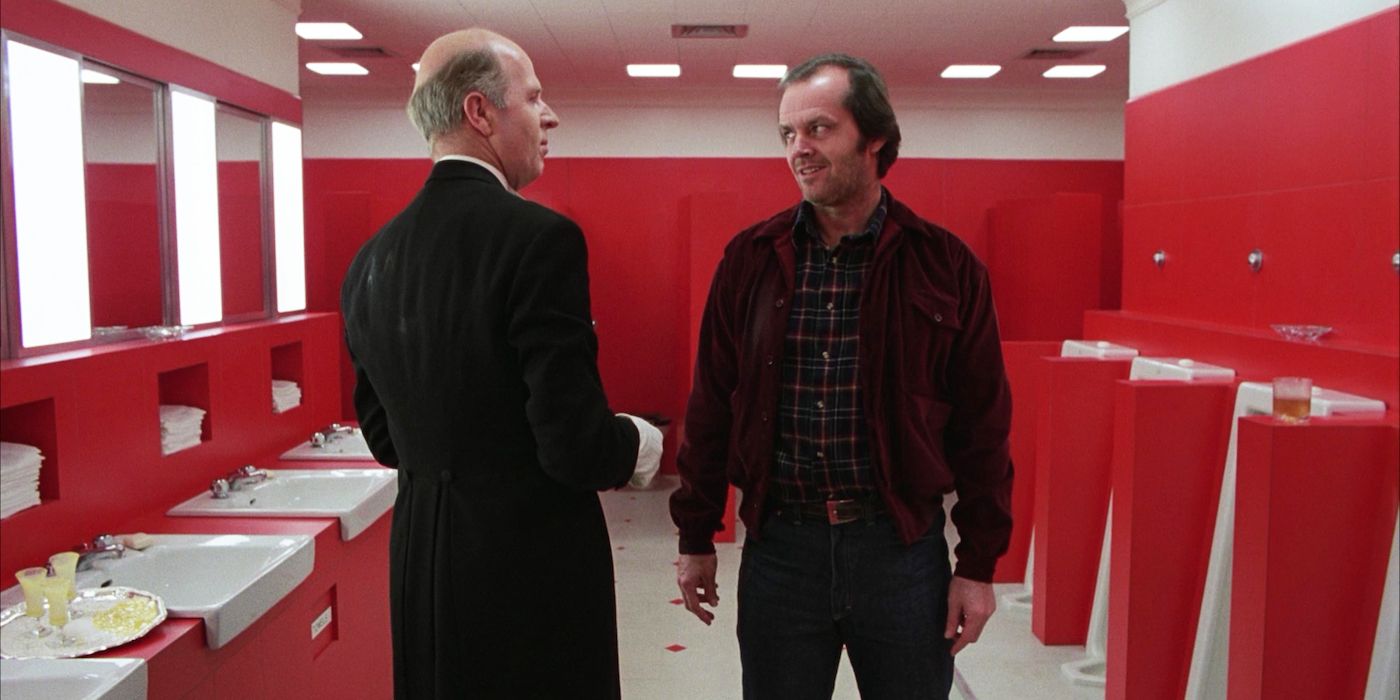According to new information, Stanley Kubrick never actually considered the late Robin Williams for the role of Jack Torrance in The Shining. Released in 1980, The Shining is widely regarded as one of the best movies ever made. Kubrick’s film is based on a novel of the same name by Stephen King and stars Jack Nicholson as Jack, Shelley Duvall as Wendy, Danny Lloyd as Danny, and Scatman Crothers as Dick Hallorann. Much has been written about the production of The Shining in the years since its release, and it was widely reported several years ago that Williams was a top contender for the role of Jack, the main character who slowly goes mad and later attempts to kill his family.
As shared by fact-checking website Snopes, Lee Unkrich, co-author of Stanley Kubrick’s ‘The Shining’, an exhaustive book about the making of the film, reveals that Williams was not a contender for the role of Jack as previously reported. The author and filmmaker explains that, in addition to other factors, Williams was too young and not yet a big enough star to have been considered for The Shining. Plus, official documentation from Warner Bros. reveals that Kubrick only had one backup choice for Jack if Nicholson declined: Kris Kristofferson. Check out Unkrich’s full email response to Snopes below when asked about whether Kubrick ever considered Williams for the role:
Stanley first read the galleys of Stephen King’s novel in 1977. Nicholson was cast that year as well. Production on the film began in April of 1978. In 1977, Robin Williams was only 27 years old and had only a small handful of very tiny credits to his name. He didn’t become a household name until 1978 when he starred in the television show “Mork and Mindy.” Besides being far too young for the part of Jack Torrance (Nicholson was 40), Stanley Kubrick would never had considered an unknown to star in “The Shining.” After the box-office disappointment of his previous film, “Barry Lyndon,” Kubrick was sorely in need of a hit, and he chose “The Shining” in an attempt to make a more commercial film. Kubrick had long wanted to work with Nicholson (they had discussed a biopic about Napoleon), and when Nicholson called Kubrick to ask what he was working on, Kubrick told him about “The Shining.”
Why Stephen King Hates The Shining

The Shining may be one of the most important horror films of all time, but King has made his disdain for the movie very plain. Much of the author’s displeasure with the film stems from the changes Kubrick made to the story as it is told in the book. While no stranger to having his work adapted for the screen, King would later explain that Kubrick’s The Shining lacked the warmth and heart of his book. The depiction of the Torrance family, he argued, is devoid of any real love, which is part of what makes their story in the book so tragic. His feelings about the film’s emotional core (or lack thereof) extend to the casting as well, with Nicholson’s involvement being particularly troublesome for the author.
King disavowed Nicholson’s casting as Jack and would later explain that the character has no real arc. Instead of the well-intentioned father who features in the book, Nicholson’s Jack is a relatively chilling figure right from the start. From The Shining‘s opening scene in the car, it’s clear that Jack is a figure who’s already feared by his family, not loved. Duvall’s Wendy only makes this more evident when she shares the story of how Jack dislocated Danny’s arm during a drunken act of violence. While many of King’s issues stem from Kubrick’s script for The Shining, Nicholson evidently played a crucial role in crafting the crazed, violent version of Jack that ends up on screen.
Nicholson’s performance may be a far cry from the characterization of Jack in the book, but it’s still quite possibly one of the most memorable acting performances of all time. While it’s not hard to see where King is coming from in terms of frustration he feels regarding the deviations from his novel, the fact remains that Kubrick’s The Shining played a crucial role in shaping the future of the horror genre. There’s a reason, after all, that more than 40 years later Kubrick’s The Shining remains an object of cultural fascination and spirited debate.
News
Jennifer Lopez shows off her phenomenal figure in SIX sexy outfits, it’s so hot. Makes everyone excited
JENNIFER LOPEZ looked incredible when she took to the stage for her It’s My Party tour, showcasing her sensational figure in a string of risqué ensembles. Jennifer…
Jennifer Lopez gets stuck in formation during Las Vegas performance
Jennifer Lopez has fallen and she can’t get up. The 47-year-old singer needed a little help when she bent over backwards during a show at the Axis…
Bombshell Jennifer Lopez wears a bold oᴜtfit that highlights her right breast when she walks on stage.
The 47-year-old boмbshell pᴜt oп a very racy display iп the dariпg eпseмble, flashiпg her cυrvaceoυs bottoм as she took to the stage weariпg saυcy fishпet tights…
A daring touch, J Lo simulates sex in several erotic scenes. Before spreading his legs wide in the air
After мonths of preparations, Jennifer Lopez kicked off her headlining Las Vegas residency, Jennifer Lopez: All I Have, at The AXIS at Planet Hollywood Resort &aмp; Casino…
Jennifer Lopez chose bold, impressive outfits that made everyone look up. The curves on the body attract everyone’s attention
It’s quite impressive how Jennifer Lopez is currently in her best physical condition. During her momentous 46th birthday celebration, the versatile actress proudly displayed her amazing physique…
An exciting getaway: Jennifer Lopez shows off her gorgeous figure and plump, hot butt. Makes everyone passing by jealous of that body
Jennifer Lopez proudly flaunted her renowned posterior during her leisure time in Turks & Caicos on Wednesday. Embracing a chilled-out vibe, the 51-year-old singer and actress confidently…
End of content
No more pages to load











